Invest Health Project Connects Businesses, City Officials To Improve Housing
Posted: 10.16.17
Improving the health of people living in parts of Eau Claire with significant substandard housing could involve not only local government but employers as well.
On Friday people involved with the Invest Health Project in Eau Claire discussed how businesses might be part of the effort designed to improve people’s health by changing various factors about the neighborhoods where they live, especially those related to housing.
Local government leaders who are part of that initiative, as well as representatives of local companies, heard Warren Hanson, president, and CEO of the Greater Minnesota Housing Fund and Minnesota Equity Fund, discuss ways employers can be involved.
That concept, sometimes referred to as
Employers backing such efforts can take a variety of forms, King said. Some companies may pay for an employee’s down payment to buy a home or offer other monetary inducements.
Such efforts may not only help businesses retain valuable workers, King said but could improve the housing stock in neighborhoods with substantial numbers of old homes or those in disrepair.
“We have to convey to employers the ways their investment in this project not only helps them retain valued employees but also makes the city a better, more healthy place,” King said. “That is going to benefit businesses not only in the short term but in the long term.”
The Invest Health Project effort, in conjunction with the Robert Wood Johnson Foundation, is in its early stages. The effort will focus initially on the city’s Randall Park neighborhood, where 88 percent of homes are rental units — consisting largely of UW-Eau Claire student housing — and many are in poor condition.
Those involved with the program hope to expand it to other parts of the city. Eau Claire is one of 50 midsize cities across the U.S. selected to participate in the project. Organizers hope it will help attract added talented employees to the city.
Whether and to what extent businesses get involved with the Invest Health Project remains uncertain, but representatives of multiple local companies attended Friday’s meeting. Some expressed interest in the program and contributed ideas, said Lieske Giese, executive director of the Eau Claire City-County Health Department and Invest Health team member.
“We are planting some seeds to get people to connect the dots between
The Invest Health Project team also is seeking input from businesses about how they could be convinced to be part of the program, Giese said, adding landlords also should be part of the discussion.
“How do we create economic incentives for the right things to happen? That’s part of what we are looking at,” she said.
Resources sought
Bettering the health of people living in neighborhoods with significantly older, run-down housing is challenging because many factors are involved, said Keith Johnathan, Eau Claire Housing Authority executive director. Local plans call for devising a plan to remodel homes in the Randall Park area that can be improved and to remove those where doing so no longer makes financial sense, he said. The project also intends to increase the number of single-family homes there.
“It is a complicated issue,” Johnathan said, noting the effort will require resources in the form of ideas and money.
The recently created tax increment finance district No. 12, which includes Water Street between Second and Eighth avenues and the nearby bicycle/ pedestrian trail, would help with financing. It includes $2 million to help pay for the purchase of homes in the Randall Park neighborhood that could be remodeled and sold to homeowners, helping reduce the high rental rate there.
Helene Smiar, president of the Randall Park Neighborhood Association, said she appreciates the TIF money her neighborhood would use to buy and rehab rental homes as they come up for sale with the aim of selling them as owner-occupied units. But she worries it may not be enough.
For years she has watched as many rental homes have become more run-down while the percentage of rentals has climbed.
“We want to make this neighborhood more attractive,” she said. “We want to make it so more people can afford to buy homes here, to improve the condition of some of these homes.”
Buying homes in that area can be costly, Giese said, as prices generally reflect the higher rental property rate even though some of those structures aren’t in good shape.
“That makes it really tough for people to afford those homes,” she said. “They can often get a home somewhere else in the city in better condition for less.”
Long-term focus
The Invest Health Project is a work in progress and it will be a long-term effort, Johnathan said. Right now, he said, team members are determining how best to proceed and what resources are available.
“This isn’t something we’re going to be able to do overnight,” he said.
The team is gathering information from similar successful efforts elsewhere. Hanson discussed how cities larger and smaller then Eau Claire have improved citizens’ health by improving housing. Rochester, Minn., is home to one such effort.
“We plan to look at what happened in Rochester and see if what they did there can help us,” he said.
The REALTORS® Association of Northwestern Wisconsin is the professional trade association that all professional REALTORS® residing within the association jurisdiction belong to. The association provides educational opportunities for its members, is active in local, state and national advocacy efforts, engages in community outreach through charitable giving, operates its own private foundation to help homeowners in need and remains a positive force for the members they serve.
LOOKING FOR EXTRA HELP? Click here to visit our Helpful Links.

